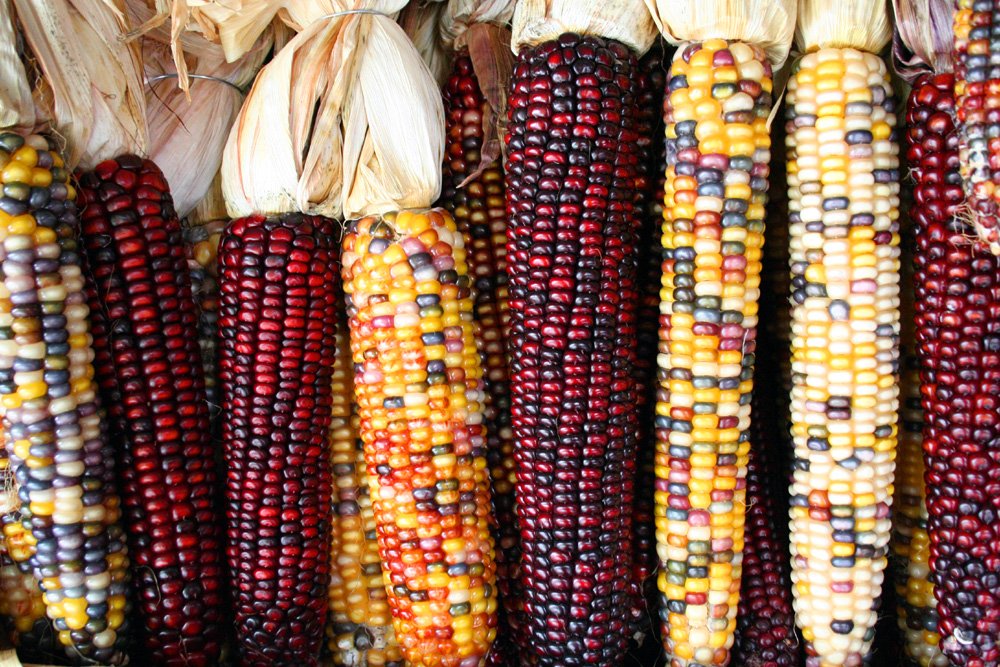One of easiest ways to get closer to nature is by doing something called gardening where you grow and take care of your own plants.
As technology advances the average gardener have more choices to pick from, One particular way they get more types of plantings is using a process called cross breeding in plants.
Also called hybridization, As in every scientific advancement we reach we have to check on the pros and cons of such discovery.
Therefor, We did our research and found out what are the advantages and disadvantages of cross breeding ( Hybridization ) in plants and it will affect the way we look at gardening in the future.
In most cases, Plants that are cross breed tend to be more vigorous and faster growing than the parent plants. Sadly the price of hybrid seeds tend to come at a very high cost due to the intensive scientific research it needs to find a desirable result.
Advantages of hybridization in plants
Hybrid plants are usually more vigorous and faster growing than other plants. This can be great for those working in agriculture as they can reap greater crops and make more money.
These plant types are also more resistant to many diseases and afflictions, which effect parent plants. Fungi, bacteria and viruses can otherwise wipe out whole crops.
Disease is such a problem for plants that some selective breeding is done for the purpose of creating strains that are more disease-resistant.
In a similar vein, hybrid plants can be less susceptible to problematic growing conditions. Plants can be bred to be more tolerant of little water or extremes of temperature.
Many seeds sold for home gardens are selectively bred to make them easier to grow, essentially.
For plants that are not being grown for food, selective breeding can be useful in creating uniformity. The plants will, therefore, be perceived as more attractive.
Plants can even be selectively bred to produce more visually appealing characteristics, such as bigger or more brightly colored flowers.
Selective breeding is also a much safer way of manipulating plants than through genetic modification, commonly known as GMO. It’s more a process of speeding up evolution, rather than overriding it entirely.
Disadvantage of plant hybridization
One point that is noticeable by a lot of people is that selective breeding can contribute to loss of variety. This gives little room for evolutionary expansion in plants further in the future.
Other people criticize selective breeding as it does not take into account genetic mutation. It can only maximize good traits, rather than removing bad.
Therefore, in the future, the whole species of plant can end up with the same bad trait, which can lead to species wipe-out. A depression in gene diversity can actually cause genetic mutation, too.
Learning the process of cross breeding plants

Crossbreeding is the botanical mixing of two plant species to create a hybrid, ideally one with all the best characteristics of the parent plants and none of their faults.
Those of us who are parents know how tricky this can be, but many successful fruit hybrids can be found in grocery stores.
Creating a great hybrid requires a high tolerance patience and perseverance, but it can be fun experiments to implement for regular home gardening purposes.
If you take up plant breeding as a serious hobby, you can predict the results of your efforts more successfully.
Plants, like animals, inherit characteristics from their parents according to laws of heredity that make it feasible to predict the percentage of offspring that will inherit a certain trait.
By working with dominant and recessive genes, you will be able to hone in on duplicating specific plant characteristics and eliminating others.
Finally, a good tip would be related breeds since the closer two plants are in genus and species, the more likely it is that they will crossbreed successfully.
Achievements of plant breeding
Plant breeding plays an important role in solving food insecurity by increasing the yield. Some of the achievements of plant breeding are:
- Development of hybrid varieties
- Short stature
- Efficiency of production
- Insect pests management
- Disease resistance
- Early maturity
- Drought tolerant
Popular Hybrid Plants
The popularity of crossbreeding two fruit plants is increasing dramatically. This is best illustrated by noting the unique names of fruits now being sold in grocery stores.
Here are some of the most known hybrid plants:
Hybrid Lilies
Categorized in both Asiatic and Oriental hybrids. The lilies comes in different bright shades from yellow, gold and orange to rose, pink and white.
Hybrid lilies can easily be grown as potted plants when grown in the right medium with proper light and watering. They are likely to develop leaf scorch from the fluoride found in most growing mediums.
Hybrid Corn

The features of this particular type make it easier for regular gardeners to grow it at home.
They can easily be differentiated from normal crops since they tend to have a sweeter and more rich taste to it. There are main categories for Hybrid corns.
Standard (su): The oldest type of sweet corn, Meant for livestock.They are known for their creamy corn flavor and mild sugars. The sugars quickly convert to starch so they are best eaten soon after harvest.
Sugary Extender (se): Contain modifier genes that increase sugars and tenderness to varying degrees. These higher sugar levels result in hybrids that maintain their quality over a longer period of time.
Super Sweet (sh2): Super-sweet types have four to ten times the sugar content of normal sugar (su) types. Contain the shrunken-2 gene and get their name from the appearance of the dried kernel.
Synergistic (sy): A common trait of all (sy) types is that isolation from other (su) and (se) varieties pollinating at the same time is not required since it combines the characteristics of both super-sweet and sugary enhanced varieties. The kernels segregate on the ear at 3 sugary kernels to 1 super-sweet.
Augmented Supersweet: Augmented Shrunken sweet corns are a new generation of shrunken corn types. Like regular shrunkens, they contain the sh2 gene, but kernels of augmented shrunken are extra juicy and tender like sugary enhanced (se) varieties.
Olympia
A slow-bolting smooth leaf spinach, The Olympia is the crowds favorite due to its faster growth that can be ready to harvest in only 48 days.
Not only these hybrid spinach is highly resistant to bolting under high summer temperatures and long days. But are also an excellent source of fiber and vitamins A and C.
Meyer Lemon Trees
The Meyer lemons is popular as an ornamental plant for its compact size, hardiness and productivity. It is decorative and suitable for container growing.
The tree is reasonably hardy and grows well in warm climates. It is fairly vigorous, with a plant grown from seed usually beginning to fruit in four years yielding thousands of lemons over its lifetime.
Mexican poppy
More known as the Argemone mexicana, It is a species of poppy found in Mexico and now widely naturalized in many parts of the world.
Extremely hardy plant, it is tolerant of drought and poor soil, often being the only cover on new road cuttings or verges and has a bright yellow latex.
Used medicinally by many people even thought The seeds resemble the seeds of Brassica nigra (mustard). As a result, mustard can be adulterated by argemone seeds, rendering it poisonous.
How seed breeding works
Here is a short animated video to further explain about seed breeding and how it changed our agronomy forever. You can also check origonlive.com for more info.
Conclusion : Advantages and disadvantages of cross breeding ( Hybridization ) in plants
As a final note, Not only can we say the process of cross breeding in plants (hybridization) has pushed Gardening to the next level, But also changed the whole worlds perspective about conventional agriculture.
Even though our research showed that the advantages far outweigh the disadvantages of cross breeding it does not mean it is. Since there is no proof that 10 years some terrible side effect shows up.
But it is still unlikely to happen due to the fact that some hybrid plants were naturally produced from nature.
If you have anything you would like us to add that you feel we missed or even a question that is on your mind about the topic make sure to leave a comment down below.



